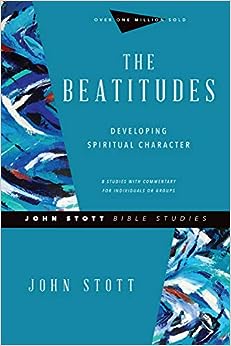This week we are going through Chapter 2 of John Stott’s The Beatitudes – Blessed are Those that Mourn, For They shall be Comforted. Traditionally, the Church has interpreted this Beatitude as speaking to our being mournful over our sinful nature, for as Paul writes: “I rejoice, not because you were grieved, but because you were grieved into repenting; for you felt a godly grief, so that you suffered no loss through us. For godly grief produces a repentance that leads to salvation and brings no regret, but worldly grief produces death.” 2 Cor. 7:9-10. We mourn not over the loss of the things of this world but over the loss of our godly nature occasioned by sin. For only within our poverty of spirit than we can mourn.
The Church will also equate this mournfulness and the tears caused thereby to baptism. In his Ladder of Divine Ascent, John Climacus writes “Greater than baptism itself is the fountain of tears after baptism, even though it is somewhat audacious to say so. For baptism is the washing away of evils that were in us before, but sins committed after baptism are washed away by the tears of the mournful. As baptism is received in infancy, we have all defiled it, but we cleanse it anew with tears. And if God in His love for mankind had not given us tears to mourn, few indeed and hard to find would be those in a state of grace.” (Ch. 7.6.) The Good News of the mournful, is that they shall be comforted. For just as we receive the Holy Spirit in baptism, so much more so do we receive the Comforter in mournful repentance.
I have attached the commentary to this beatitude from John Chrysostom (Homilies on the Gospel of Matthew, 15.4) as well the relevant excerpt from Kenneth Bailey’s book Jesus Through Middle Eastern Eyes (pp.65-75). Please take the time this weekend to work through the questions posed by Stott in the workbook.
Dinner is at 6. The menu is ham and scalloped potatoes. Discussion about 6:45. Please bring a friend. Hope to see you here.
For his wrath endures but the twinkling of an eye, *
Psalm 30:5-6
his favor for a lifetime.
Weeping may spend the night, *
but joy comes in the morning.

